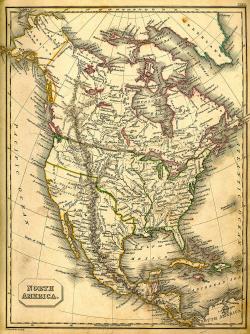The Problem with Alice
Is there a future for those whose lives have been affected by the scourge of alcohol addiction?
Alice Springs is a community in crisis—a crisis it shares with a multitude of communities, families, and individuals around the world. This central-outback Australian town with a population of approximately 32,500 (Population.net.au) is experiencing a set of social problems so severe that the mayor has made repeated appeals for the Northern Territory and federal governments to help quell a surge of violence and crime. Residents have demanded that the various government bodies take action at this sudden rise.
In response, Australian Prime Minister Anthony Albanese and the Chief Minister of the Northern Territory met in January with stakeholders in Alice Springs to discuss issues of alcohol-related harm and crime occurring in the town and various Aboriginal communities. Together, they formulated a plan to address the situation and, as a result, alcohol restrictions were reintroduced within the region, and the Office of Central Australia Regional Controller (OCARC) was established.
Dorelle Anderson was appointed as the Central Australia Regional Controller and commissioned to address the dramatic rise in alcohol-fuelled crime. Whilst the interim measures in her report were designed to shield Aboriginal communities from alcohol-related crime, many Alice Springs residents say that authorities are not adequately addressing the problem. Sadly, much of it is due to unsupervised children who roam the streets, especially at night, creating havoc. Why? The apparent reason is even sadder than the statistics. According to Alice Springs Mayor Matt Patterson, “Why can we have 50–100 kids on the street every night? Because it is safer for the kids to be on the street than at home” (“‘Human beings’: Locals calls for children to be removed from families in Alice Springs as the young crime crisis deepens,” Australia News, February 1, 2023).
Why is this sudden upsurge in predominately alcohol-related crime occurring now?
Alcohol Abuse and Violence
For 15 years prior to July 2022, Alice Springs and many similar communities in the region had been subject to restrictions on the sale of alcohol—first through the 2007–08 Northern Territory National Emergency Response Act, and then through the 2012 Stronger Futures in the Northern Territories Act. The restrictions sought to curb alcohol-related violence and domestic abuse, particularly as they were affecting indigenous women and children. But they contained a sunset clause that revoked the restrictions in July 2022.
Regional Controller Anderson’s report makes for shocking reading. It noted in November 2022 a 79.4 percent annual increase over 2019 in alcohol-related assaults, and a 96.7 percent increase in assaults related to domestic violence. Tragically, the report further noted that “clinical reports from Emergency Department Alice Springs Hospital have observed an increase in the severity of harm being inflicted on Aboriginal women as a result of domestic violence since the cessation of the Stronger Futures Act restrictions. Data is still under collection to verify these observations” (Office of Central Australian Regional Controller—Proposed Actions for Alcohol Related Harm in Central Australian Communities, p. 11).
Even more sobering is a sentence from the report’s “Recommendations” section: “We cannot continue to accept the levels of domestic and family violence leading to assaults on women who are presenting with horrific facial injuries, broken bones, fractured skulls and in some tragic situations even death” (p. 14).
Can the Cycle Be Broken?
Reading this report and watching the various news coverage of this situation is heartbreaking. An unbroken cycle of destructive behaviour is having devastating effects on all the individuals, families, and communities concerned. Dorelle Anderson’s report identified the primary contributing factors as Aboriginal “overrepresentation in the criminal justice system and in detention; poorer health outcomes, including life expectancy, child mortality rates, suicide rates, and child development; higher rates of alcohol and other drug (AOD) addiction and misuse; and poorer education and training outcomes, and fewer employment opportunities” (p. 4).
The cycle is pervasive and multi-generational. Each new generation grows up facing these entrenched factors, and very few avoid exposure and reaction to dysfunction within their families and communities. Parents succumb to the escapism that substance abuse provides, and their children are witness to the horrific harms that ensue. Children then flee the violence and abuse, congregating in unsupervised groups that wreak havoc on the communities. Frustrated, angry, and disillusioned children grow up with few or no role models who can guide them in a direction that would break the destructive cycle, so they follow in their parents’ footsteps and succumb to the same escapist remedies. Sadly, decades of largely failed policies and initiatives have shown that, whilst it is easy to say why this problem is occurring, it is extremely difficult to resolve it.
Again quoting from Dorelle Anderson’s report, “We need to listen to the most vulnerable in our community and act with urgency to address the current crisis but also tackle the extreme poverty and social disadvantage causal factors amongst this cohort.… The disadvantage is complex and challenging and will require targeted policies and programmatic responses particularly in early intervention and prevention, supporting the family unit” (p. 1).
Family units most readily break down when people are trapped in the cycle of endemic poverty, which perpetuates itself over generations. For many children trapped in this horrendous situation, it is overwhelming and appears hopeless, leading some to lash out in anger and frustration, more often than not at those around them. They live the only way of life they have seen and experienced, the way of substance abuse and violence, perpetuating the cycle of harm and abuse.
It would be distressing enough if this cycle only pertained to these Central Australian communities. However, whilst Alice Springs is experiencing a particularly severe crisis of cyclical dysfunction, global news sources show us that communities in all nations—rich and poor alike—are experiencing this same cycle to one degree or another. The damaging effects of the sins of the fathers are passed from each generation to every subsequent generation, and will continue to be passed down until this seemingly endless cycle is broken.
But will it ever be broken?
All Families Will Be Blessed
The good news is that, yes, the cycle will end—for the people of Alice Springs and for all the families of the earth—and it will end permanently. The Bible is clear that God will “send Jesus Christ, who was preached to you before, whom heaven must receive until the times of restoration of all things, which God has spoken by the mouth of all His holy prophets since the world began” (Acts 3:20). To prepare for that end, God has commissioned His Church to proclaim the Good News of the Kingdom of God to “the whole world as a testimony to all nations, and then the end will come” (Matthew 24:14). And those of you reading this magazine can see that this Work is indeed being done. The good news of Christ’s imminent return is being preached, and God the Father will indeed send Christ back to planet Earth as King of kings and Lord of lords. Most importantly, Christ’s return will herald “the times of restoration of all things” (Acts 3:21)—which includes the functional restoration of the family unit.
So few realize that God intends to bless, without exception, all the nations of this world—all the families of every background and ethnicity. This has always been His intention, a guaranteed promise found in both the Old and New Testaments. Consider these words of the Apostle Peter to the Jews of his day: “Yes, and all the prophets, from Samuel and those who follow, as many as have spoken, have also foretold these days. You are sons of the prophets, and of the covenant which God made with our fathers, saying to Abraham, ‘And in your seed all the families of the earth shall be blessed’” (Acts 3:24–25). God loves all human beings of every race and tribe as His children—and He seeks to bless each and every one.
And Jesus Christ Himself is the “seed” Peter mentioned above. When Christ returns, His benevolent governance will promote unmatched blessings for every people. To the extent that they obey Him and renounce their past ways, they will be blessed. We see this even today. Those who live in rebellion against God’s ways cannot avoid a situation marked by repeated generational cycles of violence and abuse. It will never change unless those involved will change. At some point, if these cycles are to end, a “circuit breaker” must be tripped.
Turning Away from Iniquities
That circuit breaker is Jesus Christ’s return to govern this earth. Continuing to read in Acts 3, we find the Apostle Peter’s words to some of the Church’s earliest converts: “To you first, God, having raised up His Servant Jesus, sent Him to bless you, in turning away every one of you from your iniquities” (Acts 3:26). Herein lies the key to ending this cycle of destructive dysfunction and its attendant evils. Every human being needs to be taught how to live a better way—a way that creates genuine peace; ensures individual, family and community safety; and guarantees a better future for all peoples. This ideal of functional families across all the earth should be considered one of the greatest blessings mankind could enjoy.
Anderson’s report makes the point clearly. “The children who have been spoken to have unanimously voiced their hatred of alcohol and the harm it inflicts on their families. Their simple aspirations are to live in a ‘normal place’, have jobs when they are older and be able to support their families with basic needs” (p. 14). This is a universal desire, a cherished hope common to all reasonable human beings—men, women, and children alike!
The only hope for this world, currently mired in a cycle of sin and destruction, is the promised “seed” Jesus Christ. He is the ultimate role model, and under His government, restoration will begin. He has been tasked by His Father to initiate the “times of restoration” and to break this harmful cycle of personal and community destruction. The good news is that Christ will succeed! We know this because He did not fail to do His Father’s work when He came here the first time. He is faithful in all things, and so, He will not fail us—all the families of the earth—when He returns.






